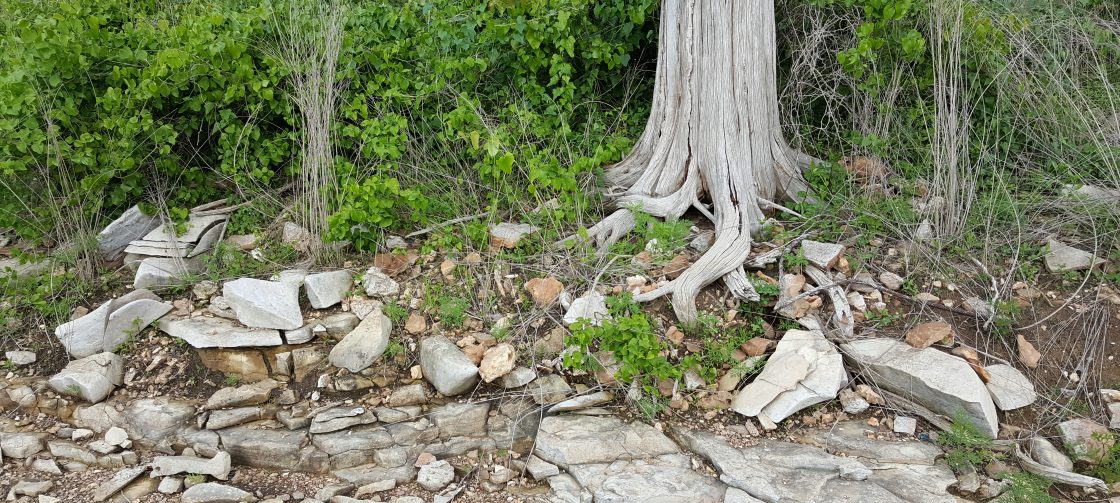by Guest Author/Contributor, Devorah Yocheved
Part I
The Convergent Tides of Oral Cultures and the Rise of Literate Cultures Produced Two Major Religions in a Backlash to Retain the “Old” While Embracing the “New” World Order
Israel went into the Babylonian exile on the cusp of a major paradigm shift in history: the rise of the written text and literacy. Scholars in this area of study attribute the addition of vowels to the Greek alphabet for hastening the “literate world.” As was typical of the emerging nations of the new Western worldview, the people of exiled Israel, now the Jews in the nations struggled to retain their ancient identity as the chosen people of the Torah of Moses while embracing the new literate world founded in the Greco-Roman cultures.
The shift from purely oral cultures, without writing, to text driven literate cultures allowed people to remember their thoughts without the use of memory aids and to work out more complex solutions. This gave birth to the analytical and systematic thinking which produced science, history, philosophy and liberal education. Professor Walter J. Ong wrote extensively about this “evolution of consciousness” in his 1982 book “Orality and Literacy.” This evolution is manifested in the classical Greek years as seen in the science of Euclid and Meton, the philosophical works of Plato and Aristotle, and the more objective historians such as Herodotus, Thucydides, Xenophon, and Ctesias.
This new world was no longer solely dependent on the elite scribal class of literates who controlled not only the limited written texts; they controlled the oral narratives from 3000 BCE through the 1st millennia CE. The West developed along these lines as a more secular, pragmatic and individualized society through the text based education of “higher learning.” The purely oral cultures that did not let go of their “orality,” as humanity moved towards “literate” text based cultures, were relegated to the “primitive” end on the continuum to “modernity.” The growing literate cultures remained segregated into classes of the uneducated poor and the educated rich, farmers and city dwellers, the people of oral folk traditions and the townsfolk of letters.
In the midst of this major shift in human history two new religions emerged that not only embraced the new literate mind set but used ancient scribal traditions to preserve their “primitive” oral traditions in their literature and liturgical traditions alongside new theologies that have endured the test of time: Rabbinic Judaism and Christianity. The rabbis of the Talmud claimed that they were handing down “the oral tradition that was given to Israel through Moses at Sinai.” The Christian founding fathers claimed equal infallibility in their new theology and text, the New Testament.
Is there verifiable authority for these claims? Looking first at the earlier rabbinic tradition, we ask these questions:
What if the Jewish people have bet our collective soul on the wrong oral tradition that is based in lies and false narratives that aids and abets the exile mentality far from our original Covenant? And if we have, how do we know that and, for the sake of a true return to our Maker, how do we do that?
The Mishna Talmud created a new utopian world for the Jewish people to learn of, embrace, and use to manage the changing social environs in their ever extended exile far from their original covenant and homeland of Israel. This new oral tradition retained a memory of their original texts, the Torah and the Prophets, placing them alongside new texts from the exile that were added to the Hebrew canon. The rabbis completed their work of codifying the Talmud which included ancient scribal devices of repetition and mnemonic memorization along with formulaic expressions such as proverbs and pithy maxims required in a purely oral tradition absent the use of a written text.
This method cleverly allowed the rabbis to invent new and every changing interpretations of the original and foundational text memorialized in the Torah and the Prophets Masoretic text. In the earliest meeting places of the exile and during the second temple period in Israel the people gathered to hear the public readings from the Torah, but in a new and different language [Aramaic] and with new and different interpretations and translations [targumim].
What followed was a vast and never ending collection of commentaries from generation after generation of “Torah scholars” known collectively as the rabbis and sages of the past two thousand years. The retention of this “oral tradition” has worked well to help the Jewish people feel “connected” to their original covenant made at Sinai.
It is implemented through ritualistic formulas of blessings, prayers, mitzvot, and celebrations that replaced the Covenantal temple, priesthood and appointed times in Israel. The orality of the rabbinic tradition is reinforced with the hermeneutical learning method of the Mishna Talmud which interprets Torah through formulaic and mnemonic expressions and repetition.

I forsook the false narrative of my birth religion Christianity that teased out its oral traditions and theologies based on the reinterpretation of the Torah and the Prophets in the New Testament. I chose the Jewish faith and tradition in my adult years seeking an authentic connection to the Covenant Maker of Israel as given in the Torah and the Prophets. I chose to move to Israel as an heir of Abraham through Jacob.
It has been heartbreaking to learn that the Jewish people in the exile inherited the false narrative based on the new Writings and expounded in the Talmud as their interpretive text of the Torah and the Prophets. The written Hebrew text of the Torah and Prophets has been sublimated to the replacement theology of rabbinic Judaism. The Jewish people have inherited this false religion crafted for the exile with no way back to our Covenant of the Ten Words, the Land of Israel, and the proper authority under the Levitical priesthood in the House of YHVH on Mt. Zion.
In fact, we learn that the Torah and the Prophets are not historically significant but allegorical, that Ezra rewrote and restored Torah, that the rabbis replaced the Levites as the presumptive authority to handle and reinterpret the Torah through a contrived chain of transmission, and that when the “mashiach” comes the rabbinic tradition will continue as the legal and religious authority over the Jewish people. Many believe that there is no need for the temple to be restored and that the Jewish people are not required to live in their Covenant Homeland of Israel … none of which is supported by the Torah, the Covenant or the Prophets.
The deep seated angst that continues to reside in the soul of the Jewish people is palpable and is reinforced by the nations continuing hatred of Israel, her people and her land. We are at war again with our neighbors and their allies in the world for our very survival in this Land of Israel. No one can be trusted or believed to have the answer. There are no good answers politically or religiously that will take us back to our Covenant Maker.
Many of us are asking: how do we return to our Covenant Maker as He wills for us?
We must return to our original Torah as given to Moses and as seen through our Prophets, through the end of the first kingdom and into the Babylonian exile, before we have a chance to understand the Will of our Covenant Maker. Even though there is evidence of scribal tampering and false narratives that made it into our canon, it is possible to see through these lies as enabling the post-biblical replacement theology of exile.
We must admit that we have exchanged our Covenant and our very essence for a manmade construct that enables our exile mentality. We must seek the ancient and everlasting path back to our Covenant Maker.
As suggested by students of ancient history, we must be willing to put ourselves in the sandals of those ancients. We must wipe our minds clean of our preconceived assumptions and work to understand their worldviews in their lifetimes. We must forsake manmade interpretations of Torah and relearn what YHVH said then and what He is saying now from His Written Word that was given to His Servant Moses in that day.
Starting with the understanding that Moses and the people who stood at Sinai in 1552 BCE lived in a world that did not have writing for the many. There were no books that could be accessed, no libraries or education for the common people. From Genesis to the first kingdom of Israel was a time of purely oral cultures, bereft of literacy and written literature. The people were wholly dependent on the narratives of the elite scribal classes regarding the heavens and life itself.
Most of humanity has been dependent on and enslaved by the dominance and persuasiveness of the few who controlled the flow of information whether orally or textually received. The people of the world are in the same predicament today. No matter how much we have “advanced,” we are being held hostage by the few self-proclaimed elites who control the flow of information, politically, socially and religiously.
With this basic understanding and in that mindset, we will approach our written text and behold what the Creator of the universe, the Holy One of Israel, actually did for all of humanity through the Covenant He made with Israel. We have forgotten and even forfeited the redemption from bondage that was granted to us 3500 years ago at Sinai. We have forgotten who we are as Covenant Israel. We must remember.
And, keeping in mind that He never changes and that His Word is everlasting, we can at least begin to understand that what He willed for Israel then and what He wills for us today has not changed. We have changed and that is why we must seek His ancient and everlasting paths back to Him and His Covenants.
נִדְמוּ עַמִּי מִבְּלִי הַדָּעַת כִּי־אַתָּה הַדַּעַת מָאַסְתָּ וְאֶמְאָסְאךָ מִכַּהֵן לִי וַתִּשְׁכַּח תּוֹרַת אֱלֹהֶיךָ אֶשְׁכַּח בָּנֶיךָ גַּם־אָנִי׃
Hosea 4:6: “My people are destroyed for lack of knowledge. Because you have rejected knowledge, I also will reject you from ministering before Me. Since you have forgotten the Torah rule of law of your God, I also will forget your children.”
שִׁמְעוּ אֵלַי רֹדְפֵי צֶדֶק מְבַקְשֵׁי יְהוָה הַבִּיטוּ אֶל־צוּר חֻצַּבְתֶּם וְאֶל־מַקֶּבֶת בּוֹר נֻקַּרְתֶּֽם׃ הַבִּיטוּ אֶל־אַבְרָהָם אֲבִיכֶם וְאֶל־שָׂרָה תְּחוֹלֶלְכֶם כִּי־אֶחָד קְרָאתִיו וַאֲבָרְכֵהוּ וְאַרְבֵּֽהוּ
Isaiah 51:1-2: “Listen to me, you who pursue righteousness, who seek YHVH: look to the rock from which you were hewn and to the quarry from which you were dug. Look to Abraham your father and to Sarah who gave birth to you in pain; when he was but one I called him, then I blessed him and multiplied him.”
2024-02-22 devorah yocheved

